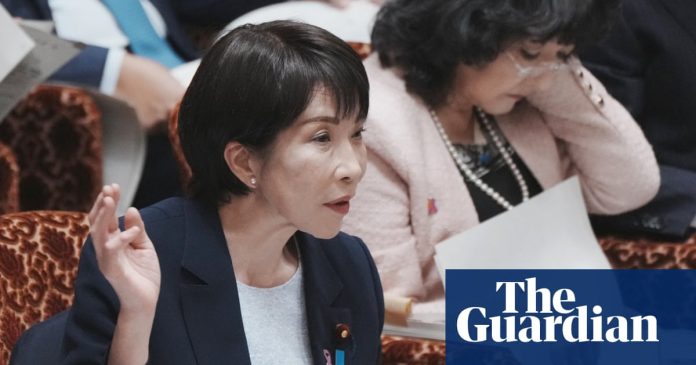Japan’s prime minister, Sanae Takaichi, has said she gets by on just two to four hours sleep a night – prompting concern over her commitment to a better work-life balance among the country’s fatigued employees.
Pointing to the bags beneath her eyes, Takaichi told MPs that she survives on minimal sleep – a habit she shares with her political hero Margaret Thatcher – after being asked how she would tackle Japan’s notoriously long working hours.
Takaichi caused a stir last week after she summoned aides to her office for a 3am meeting to prepare for a budget committee hearing that was due to start six hours later, weeks after she celebrated becoming Japan’s first female leader by promising to “work, work, work, work and work”.
“I sleep about two hours now, four hours at the longest,” she told MPs at a legislative committee meeting this week. “It’s probably bad for my skin,”
Japan has struggled to change a corporate culture that expects employees to work long hours, and often socialise with colleagues in the evening.
Punishing hours have been blamed for a rise in karoshi, or death from overwork, and for making it harder for exhausted couples to do their bit to raise the country’s low birthrate.
There is concern that Takaichi expects employees to work longer hours to promote economic growth, as her administration discusses possibly raising a cap on overtime.
She has said that any changes in working conditions would prioritise workers’ health.
“If we can create a situation where people can properly balance childcare and caregiving responsibilities according to their wishes, and also being able to work, enjoy leisure time, and relax – that would be ideal,” she said.
After she was elected president of the Liberal Democratic party (LDP) in early October – a victory that later saw her installed as prime minister – Takaichi said she would dispense with the idea of a “work-life balance for myself”, but also urged her LDP colleagues to “work like a horse”.
Her heavy workload drew expressions of concern from political friends and foes alike. Ken Saito, a former LDP economy minister, said he was “honestly worried” about Takaichi’s health, while Katsuhito Nakajima, an opposition MP, urged her to get more sleep, eliciting a nod and a smile from the prime minister.
She is not alone among Japanese people in failing to get enough sleep, although few of her compatriots can match her maximum four hours a night.
A study released on World Sleep Day in March found that people in Japan average seven 7 hours, 1 minute of sleep on weekdays – 38 minutes shy of the international average and less than people in the US, Britain, France, Germany, Italy and Canada.
Takaichi has, admittedly, had little time to relax since becoming Japan’s first female prime minister at the end of October. She had been in office only a matter of days when she attended an Asean summit in Malaysia, before welcoming Donald Trump for a state visit and meeting Xi Jinping at the Apec summit in South Korea.
A deepening row with China over her recent suggestion that Japan could become militarily involved in a conflict in the Taiwan Strait could give her yet more sleepless nights.







